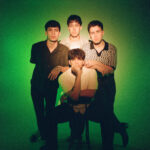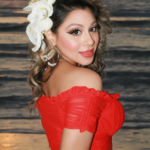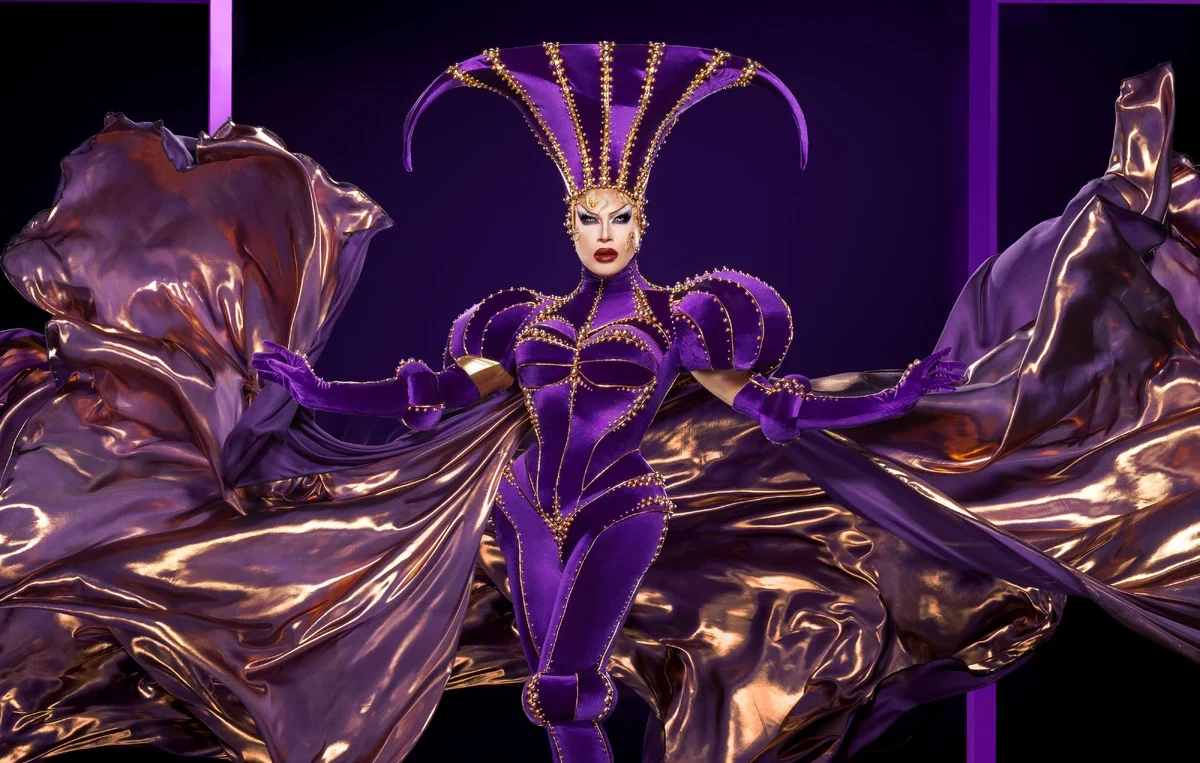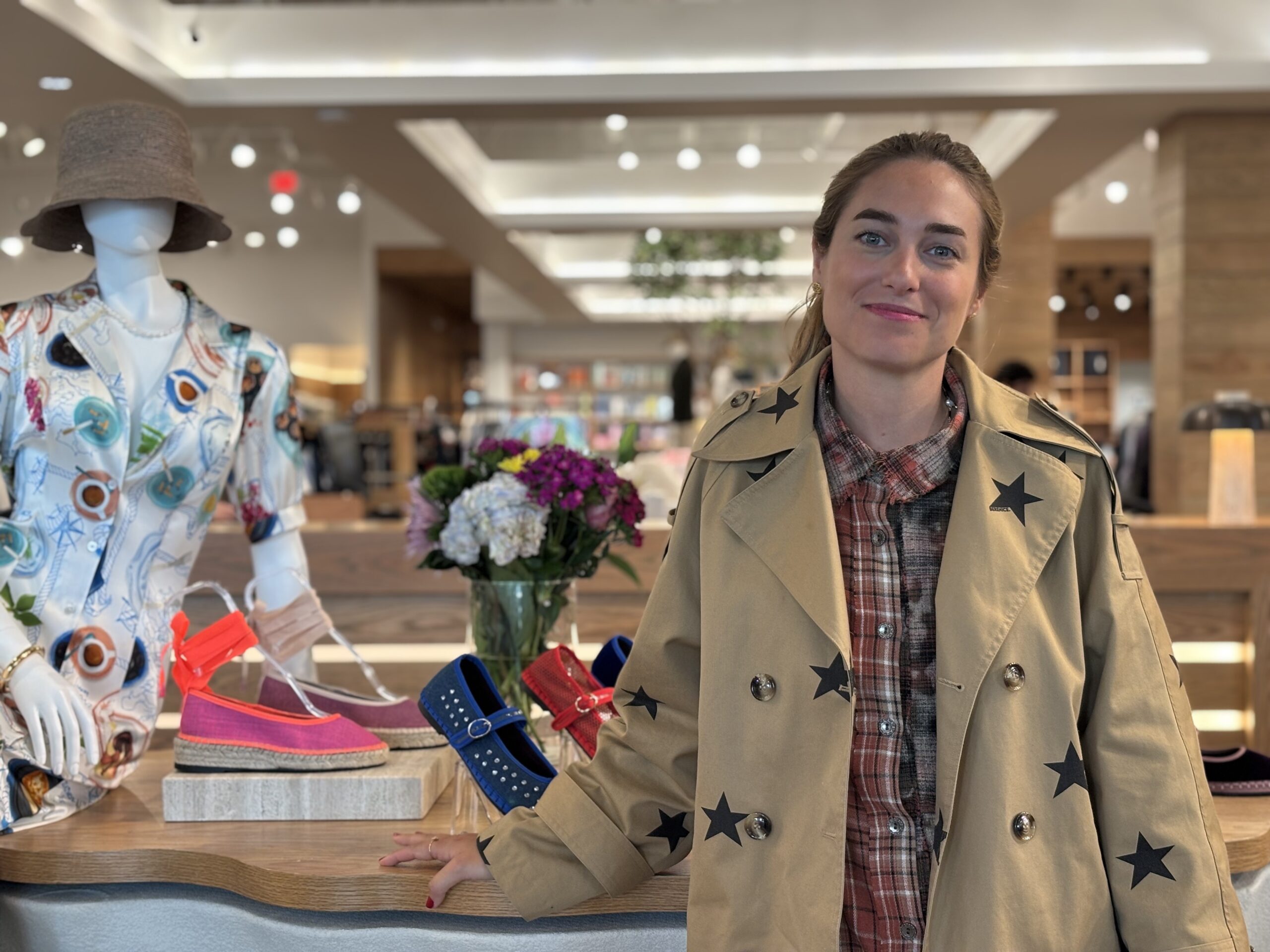By Carlota Vásquez
I met her in wintertime. At least, it was wintertime back home —my friend Joshua’s Instagram was overflowing with pretty pictures of him and his boyfriend in the snow; smiling, hugging, kissing. Meanwhile, I was standing in front of my grandparents’ house in Reterán, a small town on the outskirts of Cartagena. The heat had me sticking to the wall for the millimeter of shade it provided; the sun blazed on the back of my neck, setting fire to every skin pore; my sweat made my T-shirt sticky and my flip-flops slippery. I let a groan out from the corner of my mouth and started dragging my feet down the street. The beach was a twenty-minute walk from here, and that’s where Abuelo was meeting me; he was going to take me fishing with him. That’s what my mom used to do with me when we came, and this was my first time back in Colombia ever since her death, so Abuelo had thought it would be nice if he picked up that tradition. The only problem was, he had never gone fishing in his life, so he had hired a fisherman to teach us today.
As I walked, I bumped into a couple of people because I barely lifted my gaze from my phone screen. Looking at Joshua’s pictures had made me sick with envy, so now I was texting with Dad. He had stayed behind, claiming that he had some work to wrap up before he could begin his Christmas holidays, but I knew the real reason: the hot weather was even more unbearable to him than it was to me. Two minutes ago, he had sent me a selfie of him next to our Christmas tree, which he had finished decorating without me.
Cool! I texted him.
Missing u! he wrote back. R u having fun?
Yep!
That was a lie. I slid my phone into the outer pocket of the small backpack that hung around my shoulder and picked up the pace. I made it to the beach and found Abuelo standing on the shore in front of a motorboat. He marched up to me, his footsteps heavy even in the sand, and squeezed me into his beer belly. Then he pushed me back and rubbed his knuckles against my forehead, messing up my hair. It was only when I looked up at him and recognized his expression that I realized what he was about to say.
“Listen, Dan, slight change of plans,” he groaned. “I just got a call from my office. I’m needed in Cartagena for a three o’clock meeting. I’m really sorry, mi corazón, I have to go right now.”
I gave him my best smile. “That’s okay, Abuelo. I’ll just go back to the house.”
“No, no! Pedro will teach you fishing! That way you’ll be very good at it on Sunday, when we go together.”
I sighed and glanced at the fisherman by the corner of my eye. Abuelo was a businessman, and he would have never wanted to go fishing if it weren’t because I used to do it with Mom; and honestly, I would have never gone fishing myself if Mom didn’t make me every time. Of course, every time, I ended up having fun. Nevertheless, the last thing I wanted to do right now was jump on a motorboat with a stranger and spend three hours staring at the surface of the water in awkward silence.
But before I could complain, Abuelo kissed me on the cheek and took off, and I had no choice but to go sit on the cushions in the motorboat.
“Um, your name’s Pedro?” I asked.
“Yes.”
“Do you know English?”
“Not a lot,” he said apologetically. “Just little.”
“Okay.”
I waited for a few minutes, but he didn’t move. He simply sat there in front of me, staring at the horizon. Finally, I spoke.
“Sorry, why aren’t we going?”
He snapped his head at me and blinked. “Perdón, ¿qué?”
“Why aren’t we going?”
He pursed his lips in a worrisome manner and fished his phone out. He tapped on it for a moment, I assumed looking up Google translate, and then looked back to me, reading the words he was saying from the screen.
“Eh, we are waiting for my daughter, because she knows English.”
I nodded and grunted. I wanted to play a little Minecraft to pass the time, but then I saw that the battery was at nine percent, and I didn’t want it to run out before I got back from the fishing trip, so I tossed it back into the bag, zipped it shut and started biting on my thumbnail. Then, I heard a noise behind me. I turned to see a bike parking there and a girl hopping off. She was wearing a black Queen tank top and blue jean shorts. She took off her bike helmet and rearranged her short black curls a bit before running up to the motorboat.
“Hi,” she said with a slight accent. “Are you Manuel Moreno?”
“Oh, no, that’s my grandfather. He’s not going to be able to come,” I explained. “It’ll just be me this time.”
“I see. And you are…?”
“Daniel Zucker.”
She snorted and arched her brows. “Dan Sucker?”
“Zucker! It’s a German name!”
“It’s a stupid name.”
“Amalia!” Pedro snapped, and then he bowed his head to me. “I am sorry. Sorry, sorry.”
“It’s fine,” I assured him. “It is kind of a stupid name.”
Amalia smiled at me and plopped down in the seat next to me. Pedro glared at her and started the motorboat. We were sailing into the Caribbean Sea within a minute. I sat there, perfectly still, until the sunlight was peeling the skin off my body. Then, I grabbed the pot of sunscreen from my bag and applied some on my face; I was about to slip it back in, but Amalia ripped it from my hands and squashed a blob out on her palm.
“Amalia, ¡por Dios!” Pedro hissed.
“It’s fine,” I repeated.
She snickered while she spread the sunscreen over her cheeks.
Once we were far enough from the shore, Pedro stopped the motorboat. It shifted with the waves pleasantly. I would have liked to lie down and close my eyes, but instead, I received the fishing rod he was handing me. I copied his movements as he told me things, every time having to wait for Amalia to translate them back to me. He knew all there is to know—what everything was called, what makes a fishing rod good quality, what type of fish could usually be found in this area; and he was so consistent with his information, I got caught up in it after a while and started asking questions, still using Amalia as a translator. Once we had covered all the theoretical bases, I could finally sit down and fish—which was sitting down and doing nothing.
After about half an hour, Pedro absent-mindedly started whistling a slow, lullaby-like melody, but he immediately realized he was doing it and shut up. He nervously looked over to me.
“Sorry,” he mumbled.
I shrugged. “I don’t care. It’s pretty nice.”
He still shut up, but then Amalia took up the same melody from the top. Apparently, she didn’t know how to whistle, because she used scat—random syllables that followed each other. Her voice was low, and growly, and soon it blended in with the soft rumbling of the motor. When she finished scatting her father’s song, she moved onto her entire Queen repertoire: “The Show Must Go On”, “We Are The Champions,” “Bicycle Race,” “Don’t Stop Me Now,” “Another One Bites The Dust,” and so on. I listened to her sing, letting the ups and downs of the music carry me. Flighty tunes and heavy tunes and sorrowful tunes overflew with her raw emotion. Mom liked Queen, too—although, the only song she knew the lyrics to was “Killer Queen,” so that was the one she always sang. Come to think of it, she often sang it on these fishing escapades of ours. I looked into Amalia’s eyes, realizing as I momentarily forgot to breathe that they were the same shade of brown as Mom’s eyes; honey-colored, with flickers of gold.
At first, when I felt myself start sliding into a spellbound state, I resisted; but she was singing so beautifully that even “We Will Rock You” sounded like a lullaby in her voice. I didn’t even realize how much time had passed until she went silent. I rubbed my eyes, as if coming out of some sort of trance, and turned on my phone to look at the time. The three-hour class only had fifteen minutes left. Pedro had already turned on the boat, and we were heading back to shore.
I cleared my throat. “You… you’re really good.”
She smirked and elbowed me in the ribs. I bumped my head back against the cushion and looked at her. In the sunlight, her honey-colored eyes shimmered with hues of gold. She toyed with the bright red gem that hung from a silver chain around her neck. And right then, bathed in her presence, there was nowhere I would rather have been.
The motorboat bumped against the sand, and Amalia stepped off and offered me her hands. I took them, and she helped me land without tripping.
“Goodbye, sucker,” she said tauntingly, walking to her bike.
“B–bye!” I stammered. “It was nice meeting you!”
I waved at her as she drove away, the engine in her bike purring. Even when she swerved around the corner and got out of sight, I had to make a conscious effort to turn around so I could shake Pedro’s hand and go home. I was skipping the whole way back, doing pirouettes to avoid the other pedestrians and grinning idiotically. I arrived at the house and knocked on the door many more times than necessary. After a couple of seconds, Abuela opened.
“Hola, Dan,” she said. “Did you have fun?”
I chuckled light-heartedly. “Yes.”
My grin widened at the knowledge that I was telling the truth this time.
She had made us lunch already—fish and arroz de coco, which I had always loved as a kid. She shoved Abuelo’s portion of the food in one of her thousand Tupperware boxes and stuck it in the fridge. We sat down around the round wooden kitchen table and ate in silence. Abuela wasn’t one to talk much; she had never been. She and I had nothing to talk about, anyway. Conversation wasn’t how we connected. Instead, we’d found that we settled into each other’s company better in the silence. With her, there was no need for communication; although unusual, it was refreshing—at least I had always thought so.
When I was finished, I put my dishes in the sink and rushed upstairs to charge my phone. The room I stayed in whenever I came here was Mom’s childhood bedroom. The previous times I’d slept in there, I hadn’t really given it much thought; this time, it stung deeply.
The Supergirl-themed wallpaper was old and scratched up, and the colors had started to fade long ago. The empty bookshelves were gathering dust against the wall. The pink carpet had been fuzzy at some point, but now, the humidity had made it scruffy; it rasped the skin between my toes when I stepped on it barefooted. It was all from an era that had already disappeared, but it was still Mom’s, and the traces of her that hung in the air scratched my throat every time I breathed in.
But today, I was too distracted to notice. I plugged in my phone, hearing the little ding that confirmed it was charging, and laid on my bed with my legs hanging from the edge. I stared at the ceiling, following the cracks in the paint with my eyes, and let my thoughts wander.
To my surprise, it was a matter of seconds for them to swirl around Amalia like a flock of mockingbirds around a flower.
Her voice, her skin, her lips, her hair, her eyes.
Suddenly, I remembered that once, when I was about ten years old, I’d asked my parents how they had known they were in love with each other. Dad had said something sweet —I couldn’t recall exactly what, but it was about her sleepy smile in the morning when she had just woken up, I think. Mom just shook her head and muttered, Oh, Dani, when you love someone, you know instantly; there’s no way you can miss it.
That night, it took me two hours to doze off.
My alarm rang at five-thirty in the morning. I turned it off and was going to hop in the shower, but I was too excited to lose any time at all, so I just tossed on the same swimsuit shorts I had worn yesterday, slung my backpack around my shoulder, and snuck out of the house. It wasn’t very hard —both my grandparents were pretty heavy sleepers. Then, I sprinted to the beach, stumbling over my flip-flops and nearly falling on my face three or four times. When I arrived, I plopped down on the sand. Once the pale, eerie light of dawn leaked out of the horizon, I got a notepad and a pencil out of my bag and wrote, the scratching against the paper echoing in my ears along with my heartbeat.
I knew instantly that I loved you.
After that, I sunk into a calm state of mind I had never known before; I knew it was only a matter of time before she came, and I didn’t mind the wait at all. If I had to return tomorrow, too, then I would.
I got lucky, though. It was only a quarter to seven when I heard the rumbling of the motorbike behind me.
I ran the fingertips along the edge of the note I had ripped out the notebook. “Hi, Amalia.”
There was a pause. I had to pour every ounce of willpower in my being into not turning around, not moving, not looking at her. I could feel her behind me, grinning.
“Hello, sucker,” she said finally.
She sat down beside me. The waves licked the shore as I reached over to her with deliberately slow movements and put the note into her hands. She looked at it and snickered. I held my breath, the ocean breeze making my cheeks burn up.
Suddenly, she leaned in and kissed me. Her dry, cracked lips brushed mine in a fleeting burst of emotions, and then she backed away.
“Yo también te amo,” she whispered, and we kissed again.
About the writer:
Carlota Vásquez was born in Bogota, Colombia, in 2005. She has been writing since age seven, and she has been doing so in English since age 12. She is currently a high school student, as well as a hard-core feminist and an aspiring fantasy writer.
Want to read more stories like this? Please give us your feedback here!
Latinitas Magazine is a department within Latinitas, a registered nonprofit. Readers like you fund us, so please consider donating today. Thank you!











